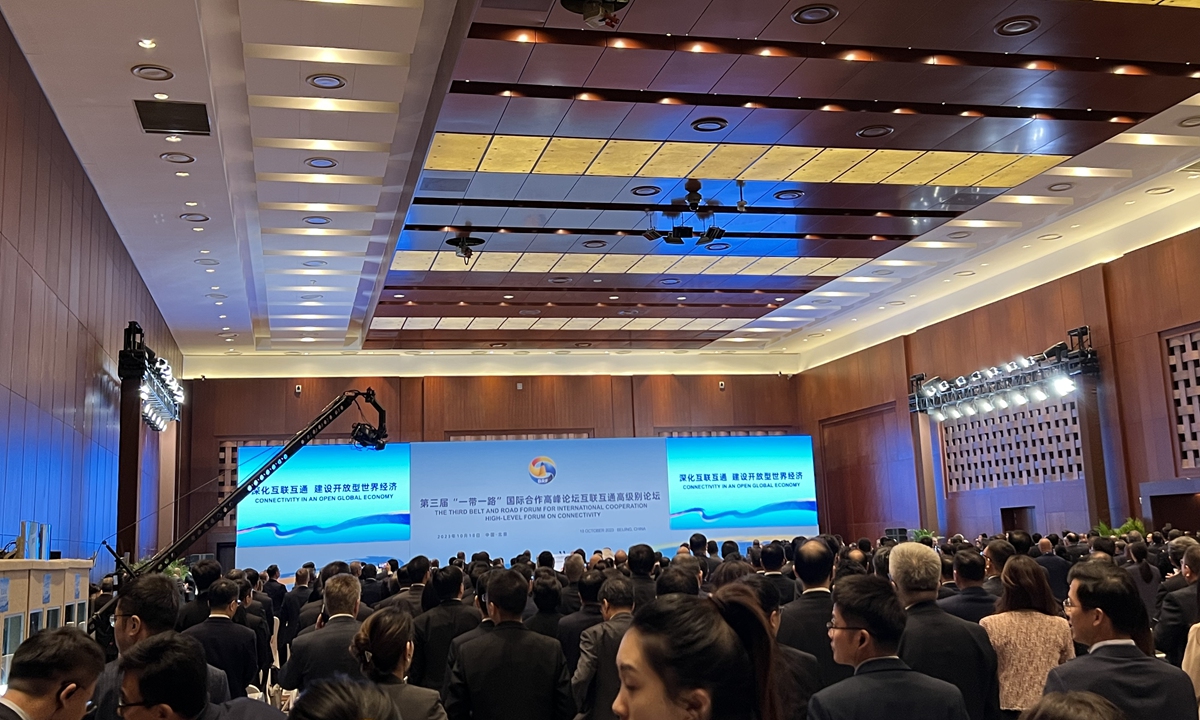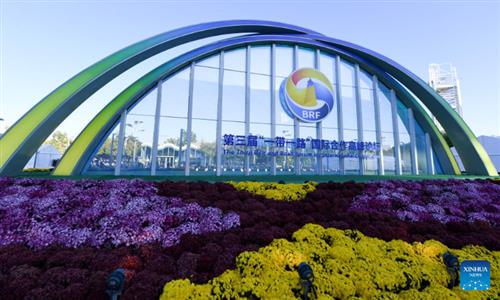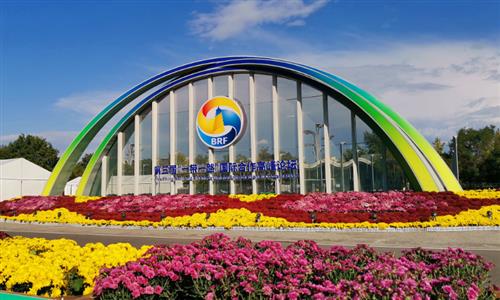Beijing Initiative for Deepening Cooperation on Connectivity to facilitate open global economy

Participants attend the High-level Forum on Connectivity, held during the third Belt and Road Forum for International Cooperation, on October 18, 2023. China launched the Beijing Initiative for Deepening Cooperation on Connectivity at the forum. Photo: Li Xuanmin/GT
China launched the Beijing Initiative for Deepening Cooperation on Connectivity on Wednesday at the High-level Forum on Connectivity held during the third Belt and Road Forum for International Cooperation (BRF), aiming to enhance all-round infrastructure connectivity among Belt and Road Initiative (BRI) partner countries, to build a world economy that is open, inclusive, balanced and beneficial for all.
The Beijing Initiative launched on Wednesday has six aspects, including enhancing the performance and connectivity of transport infrastructure, empowering the stable and sustainable development of energy, and strengthening the "soft connectivity" of rules and standards.
It's in line with the eight major steps China announced on Wednesday morning to support high-quality BRI cooperation.
As this year marks the 10th anniversary of the BRI, participants at the forum have highlighted a number of flagship connectivity projects that have made extensive contributions to regional connectivity in the past decade, including the China-Laos Railway, China-Pakistan Economic Corridor, Jakarta-Bandung High-speed Railway and the Budapest-Belgrade Railway.
The BRI can be a solution for developing connectivity, to bring peace to our region and to create shared prosperity, Indonesian President Joko Widodo said on Wednesday at the forum. The Jakarta-Bandung High-Speed Railway (HSR), the first HSR in Indonesia and Southeast Asia, and a landmark project under the China-proposed BRI, began official operation on Tuesday.
Scoping the significant achievements of the BRI in the past decade, Ethiopian Prime Minister Abiy Ahmed said at the forum on Wednesday that the BRI has "provided a unique opportunity" for the African country to leverage its advantages and further strengthen its goals of attracting investment and being connected.
Infrastructure connectivity is very tangible in terms of the benefits brought by the BRI in the past decade, Djerassem Le Bemadjiel, Minister of Hydrocarbons and Energy of Chad, told the Global Times on the sidelines of the forum on Wednesday.
Being a landlocked country, Chad is able to connect to the international market through a BRI investment that upgraded a nearby port in Africa, he said.
Also, an oil refinery built by a Chinese energy company has made the African country economically independent, rather than relying on oil imports.
"When you look at my country, Zambia, it is pursuing an agenda in line with the BRI aspirations aimed at achieving regional and global connectivity. Since coming into office, our focus has been to try and unlock the country's potential through signing of public-private partnership agreements that will see the development of not only roads, but also border infrastructure in a bid to open up our economies," Zambia's Minister of Transport and Logistics Frank Museba Tayali told the Global Times on Wednesday.
While recognizing the role that the BRI has played in boosting common development, they also expected the new stage of development to strengthen "soft connectivity," such as tech know-how learning, exchanges of people and tourism, as well as green energy cooperation.
Fiji Deputy Prime Minister and Minister for Tourism and Civil Aviation, Viliame R. Gavoka, told the Global Times on the sidelines of the forum on Wednesday that in terms of the BRI development blueprint, there are a number of points that are very important for the Pacific country.
"One is the focus on the green society that we are building. The environment is very important for us in the Pacific, as our country is very vulnerable to climate change. So the more we endeavor to go green and save the planet, the better it is for us for countries in the Pacific," he said.
Also, as the Chinese tourism market has grown significantly in Fiji under the BRI, it is expected that such momentum will continue, he said. Tourism accounts for about 40 percent of Fiji's GDP.
Chad is also looking for the transfer of technologies or strengthening of "soft connectivity," according to Bemadjiel. He will visit Chinese tech firm Huawei after the forum concludes, to discuss potential business opportunities in the storage system for solar panels.
The third BRF concluded on Wednesday in Beijing. The two-day conference was held under the theme "High-quality Belt and Road Cooperation: Together for Common Development and Prosperity."




